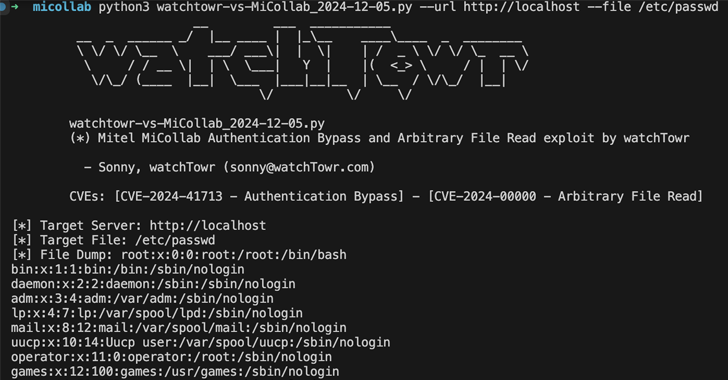-

Learn How Experts Secure Privileged Accounts—Proven PAS Strategies Webinar
Cybercriminals know that privileged accounts are the keys to your kingdom. One compromised account can lead to stolen data, disrupted operations, and massive business losses. Even top organizations struggle to secure privileged accounts. Why? Traditional Privileged Access Management (PAM) solutions often fall short, leaving: Blind spots that limit full visibility. Complex deployment processes.
-

Hackers Using Fake Video Conferencing Apps to Steal Web3 Professionals’ Data
Cybersecurity researchers have warned of a new scam campaign that leverages fake video conferencing apps to deliver an information stealer called Realst targeting people working in Web3 under the guise of fake business meetings. “The threat actors behind the malware have set up fake companies using AI to make them increase legitimacy,” Cado Security researcher…
-

Romania Cancels Presidential Election Results After Alleged Russian Meddling on TikTok
In a historic decision, Romania’s constitutional court has annulled the result of the first round of voting in the presidential election amid allegations of Russian interference. As a result, the second round vote, which was scheduled for December 8, 2024, will no longer take place. Călin Georgescu, who won the first round, denounced the verdict…
-

FSB Uses Trojan App to Monitor Russian Programmer Accused of Supporting Ukraine
A Russian programmer accused of donating money to Ukraine had his Android device secretly implanted with spyware by the Federal Security Service (FSB) after he was detained earlier this year. The findings come as part of a collaborative investigation by First Department and the University of Toronto’s Citizen Lab. “The spyware placed on his device…
-

This $3,000 Android Trojan Targeting Banks and Cryptocurrency Exchanges
As many as 77 banking institutions, cryptocurrency exchanges, and national organizations have become the target of a newly discovered Android remote access trojan (RAT) called DroidBot. “DroidBot is a modern RAT that combines hidden VNC and overlay attack techniques with spyware-like capabilities, such as keylogging and user interface monitoring,” Cleafy researchers Simone Mattia, Alessandro
-

Critical Mitel MiCollab Flaw Exposes Systems to Unauthorized File and Admin Access
Cybersecurity researchers have released a proof-of-concept (PoC) exploit that strings together a now-patched critical security flaw impacting Mitel MiCollab with an arbitrary file read zero-day, granting an attacker the ability to access files from susceptible instances. The critical vulnerability in question is CVE-2024-41713 (CVSS score: 9.8), which relates to a case of insufficient input
-

Europol Shuts Down Manson Market Fraud Marketplace, Seizes 50 Servers
Europol on Thursday announced the shutdown of a clearnet marketplace called Manson Market that facilitated online fraud on a large scale. The operation, led by German authorities, has resulted in the seizure of more than 50 servers associated with the service and the arrest of two suspects. More than 200 terabytes of digital evidence have…
-

Want to Grow Vulnerability Management into Exposure Management? Start Here!
Vulnerability Management (VM) has long been a cornerstone of organizational cybersecurity. Nearly as old as the discipline of cybersecurity itself, it aims to help organizations identify and address potential security issues before they become serious problems. Yet, in recent years, the limitations of this approach have become increasingly evident. At its core, Vulnerability Management
-

Hackers Target Uyghurs and Tibetans with MOONSHINE Exploit and DarkNimbus Backdoor
A previously undocumented threat activity cluster dubbed Earth Minotaur is leveraging the MOONSHINE exploit kit and an unreported Android-cum-Windows backdoor called DarkNimbus to facilitate long-term surveillance operations targeting Tibetans and Uyghurs. “Earth Minotaur uses MOONSHINE to deliver the DarkNimbus backdoor to Android and Windows devices, targeting WeChat, and possibly making it a
-

Cisco Warns of Exploitation of Decade-Old ASA WebVPN Vulnerability
Cisco on Monday updated an advisory to warn customers of active exploitation of a decade-old security flaw impacting its Adaptive Security Appliance (ASA). The vulnerability, tracked as CVE-2014-2120 (CVSS score: 4.3), concerns a case of insufficient input validation in ASA’s WebVPN login page that could allow an unauthenticated, remote attacker to conduct a cross-site scripting…

